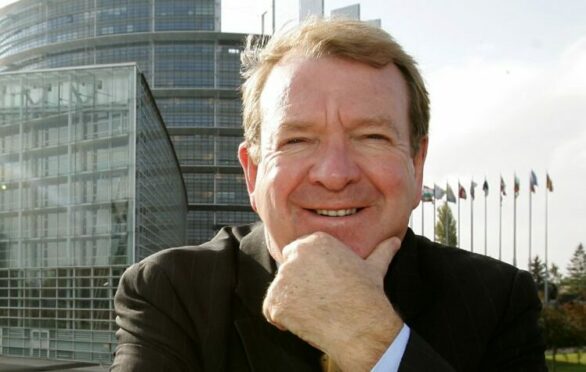
Struan Stevenson is a former member of the European Parliament and a lecturer on the Middle East
Since it began in 1901, 18 Scots have won the Nobel Prize. This is an extraordinary achievement, apparently 25 times higher than the world per capita average, with only Switzerland and Austria coming near.
Eight Scots have won the Nobel Prize in the past nine years, four in 2016 alone. This year’s Nobel Prize for chemistry was won jointly by Benjamin List from Berlin and David MacMillan from Bellshill.
MacMillan went from Scotland to become professor of chemistry at Princeton University in New Jersey. He claimed his breakthrough work on a tool for building molecules “wouldn’t have happened if I was not Scottish.” Scots have won the Nobel Prize in every category except literature. For a nation of only 5.5 million people, we punch well above our weight.
In his will, Alfred Nobel, the Swedish chemist, engineer, and inventor of dynamite, left a fortune that he instructed should be used to endow “prizes to those who have conferred the greatest benefit to humankind”. The prizes consist of a gold medal and a large cash sum. One of the best-known Scottish Nobel laureates was Sir Alexander Fleming, who won the prize in 1945 for his work on penicillin. But, in its 120-year history, the prize has gone to some controversial figures.
In 1918, Fritz Haber won the Nobel Prize for chemistry for developing a process to produce ammonia on a huge scale. Haber was notorious for helping to develop chlorine gas, used by the Germans as a chemical weapon in the trenches of the First World War. He became known as “the father of chemical warfare”.
Fritz Haber’s Nobel accolade was overcome in irony by the award of the Nobel Peace Prize in 1973 to US Secretary of State Henry Kissinger. He won the award jointly with Le Duc Tho from North Vietnam, for brokering a ceasefire, despite the fact he had ordered mass B-52 bombing raids on Hanoi while the ceasefire was being negotiated. Le Duc Tho refused to accept the prize and two members of the Nobel Committee resigned in protest at Kissinger’s nomination. Tom Lehrer, the famous song-satirist, said: “When Kissinger won the Nobel Peace Prize, satire died.”
In a rush to restore the reputation of the Peace Prize, the Nobel committee decided in 2009 to award it to President Barack Obama, although he had only been in office for nine months and had done nothing to earn the honour.
The award, “for his extraordinary efforts to strengthen international diplomacy and cooperation between peoples”, was met with derision worldwide and even Obama himself pointed out the irony by reminding everyone: “I am the commander-in-chief of a nation in the midst of two wars.”
Reeling from the bad publicity over Obama’s premature award, the Nobel committee tried to redeem itself by announcing in 2012 that the winner of the Peace Prize was the European Union. The Nobel committee’s citation read that the EU had, “for over six decades, contributed to the advancement of peace and reconciliation, democracy and human rights in Europe.” Once again there was controversy, with many people pointing to the fact that collectively, the EU was one of the world’s biggest weapons producers.
Nevertheless, further Nobel shocks lay in store. The literature prize has a history steeped in contention.
In 2016, they decided to give the award to singer-songwriter Bob Dylan for “having created new poetic expressions within the great American song tradition.” It will be a view fiercely contested by fans but, although a talented performer, Dylan can hardly be described as a poet, nor, indeed, can his songs be described as literature.
Maybe, as far as the Nobel Prize is concerned, the times they are a-changin’.

Enjoy the convenience of having The Sunday Post delivered as a digital ePaper straight to your smartphone, tablet or computer.
Subscribe for only £5.49 a month and enjoy all the benefits of the printed paper as a digital replica.
Subscribe